by Minnie Lanting, ex-Velondriake Programme Coordinator, and Antoine Rougier, Aquaculture Consultant, Madagascar
This is Blue Ventures’ approach to promoting sustainable alternative livelihoods through our community-based aquaculture programme. Instead of giving one-off donations or handing out money to local fishers, the focus is on capacity building so that the people we work with are more self-sufficient and can provide for themselves.
We certainly can’t teach the Vezo how to fish; this skill is already deeply embedded in the cultural identity of the Vezo people of the western coast of Madagascar, passed down from generation to generation. But we can share mariculture practices that generate other sources of income as an alternative to exploiting declining fish stocks.
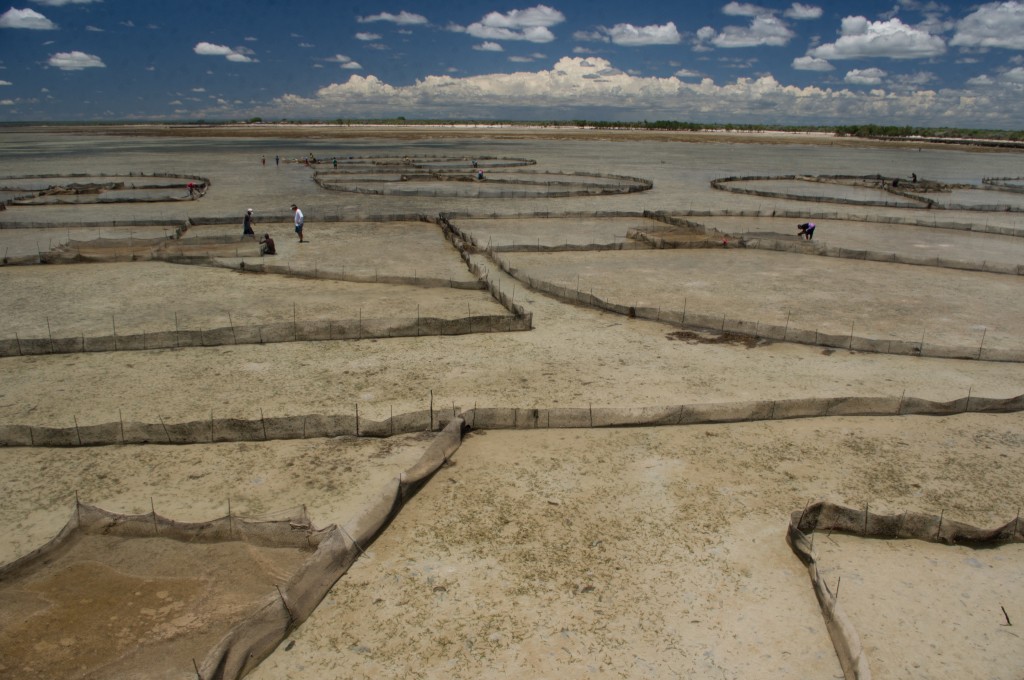
The sea cucumber pens in Tampolove, SW Madagascar
Since 2007, Blue Ventures has worked closely with local communities in Velondriake to master farming techniques, and produce market-worthy sea cucumbers and seaweed. The work is supported by our funder and partner Norges Vel, the Royal Norwegian Society for Development who have working with us in developing community-based aquaculture in southwest Madagascar since 2010, and our local partners Copefrito, a local seafood exporter and its sister company Indian Ocean Trepang.
Sea cucumber farming, especially at a community level, remains a new activity, and so developing effective farming processes and improving survivorship and growth rates have been a tough challenge. However, substantial progress has been made during this time and today; most of the technical challenges of sea cucumber grow-out are mastered, and harvests are starting to be really promising.
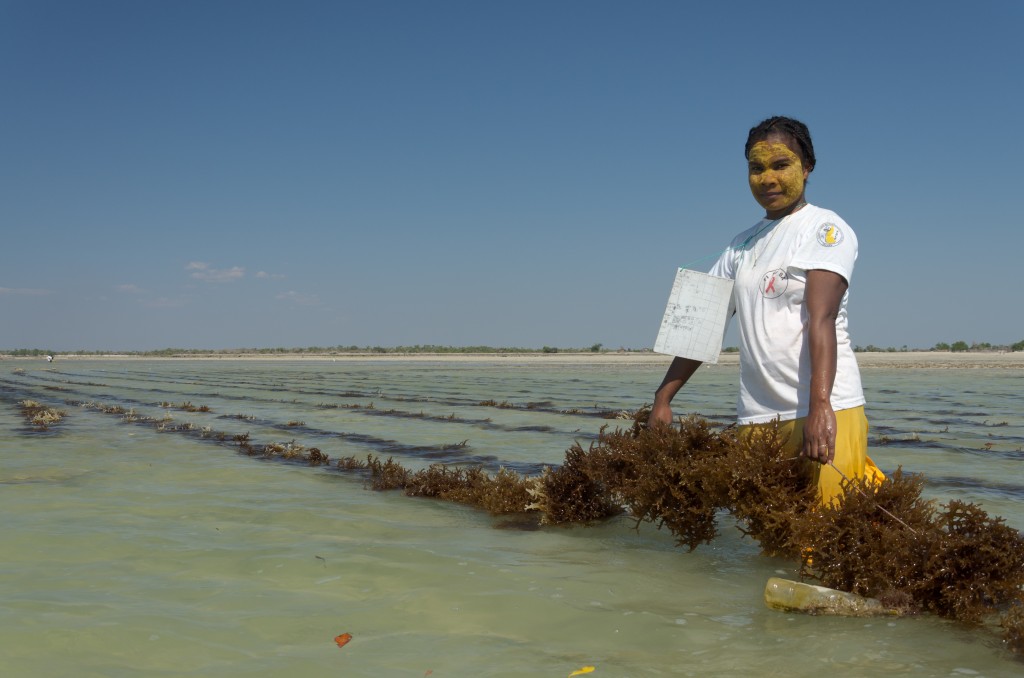
One of the farmers tends to the seaweed lines
Once the farmers’ technical capacities were improved and farming best practices were set, the next step was to build up small business management skills and farming group structures. During the last half of 2013, Blue Ventures initiated the first major efforts to transform 121 fishers-turned-farmers into real entrepreneurs through a rigorous six-module monthly training programme. The training aimed to teach farmers the basics of production and financial management, providing them with new tools to help make better decisions about their seaweed or sea cucumber farming operations. Each month the farmers learned different aspects of management:
- Production Management: Calculating income, expenses and profit
- Accounting Management: Recording transactions in cash and credit journals, stock books, general ledgers, balance sheets and income statements
- Cash Management: Decision making based on accounting analysis
- Introduction to Savings: Explanation of types of savings mechanisms
- Introduction to Credit: Understanding basics of a micro-loan
- Association and cooperative structures: Understanding purpose and benefits of starting a farmers’ group
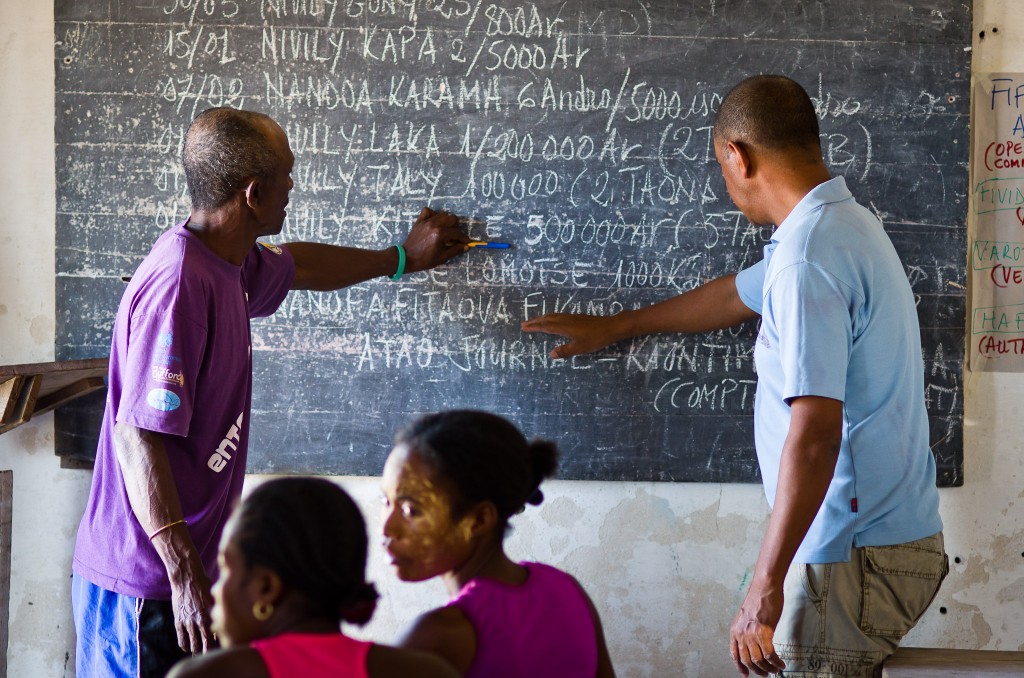
The farmers during one of the training sessions
With the help of experienced trainers from CITE, a Malagasy NGO specialising in capacity building trainings, farmers studied business terms and financial tools completing exercises adapted specifically to sea cucumber and seaweed farming activities. The training focused on using the actual facts and figures for the farmers permitting all the trainees to grasp a practical example from real life.
More than just training, this programme aimed to open the eyes of fishers to their current level of financial involvement, with a large proportion of the costs often covered by donor funds, and to help them to understand how they might prepare to reach financial independence.
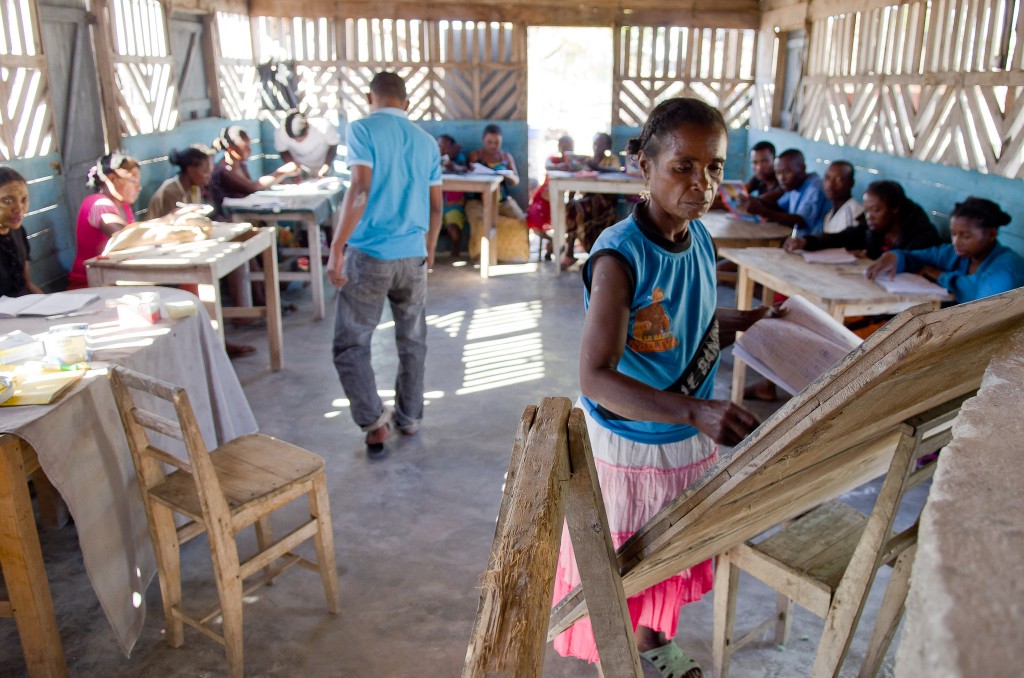
It wasn’t always easy but the training is vitally important to make sure the programme can be sustainable in the long term
In the local discotheque-turned-training centre during the financial management session, 20 men and women sit in makeshift desks scribbling furiously in their notebooks copying down the terms neatly written in chalkboard – amortisation, owner’s equity, income statement – terms and concepts that I had once pondered years ago during my undergraduate studies at business school back in the US. Amazing. Discussions amongst the farmers on strategies during the group work on how to minimise costs and maximise production were positive indicators that the training was a success.
And after six months there were more surprising results. Not only were farmers applying the new business tools to daily farming activities, but also attitudes had shifted and confidence had been built. When one farmer requested food assistance from Blue Ventures, Madame Marie Louise, a 49-year old seaweed farmer from the village of Lamboara, exclaimed:
“Raha misy mangataka vola na sakafo aminao dia omeo angady hiasany sy hamokarany!” (Malagasy version of the fish proverb, literally: If someone asks you for money or food, then give them a shovel so they can start farming)
“Don’t you see? They [Blue Ventures] are already showing us how to manage the money we earn from our seaweed work, to save so that we can buy our own food.”
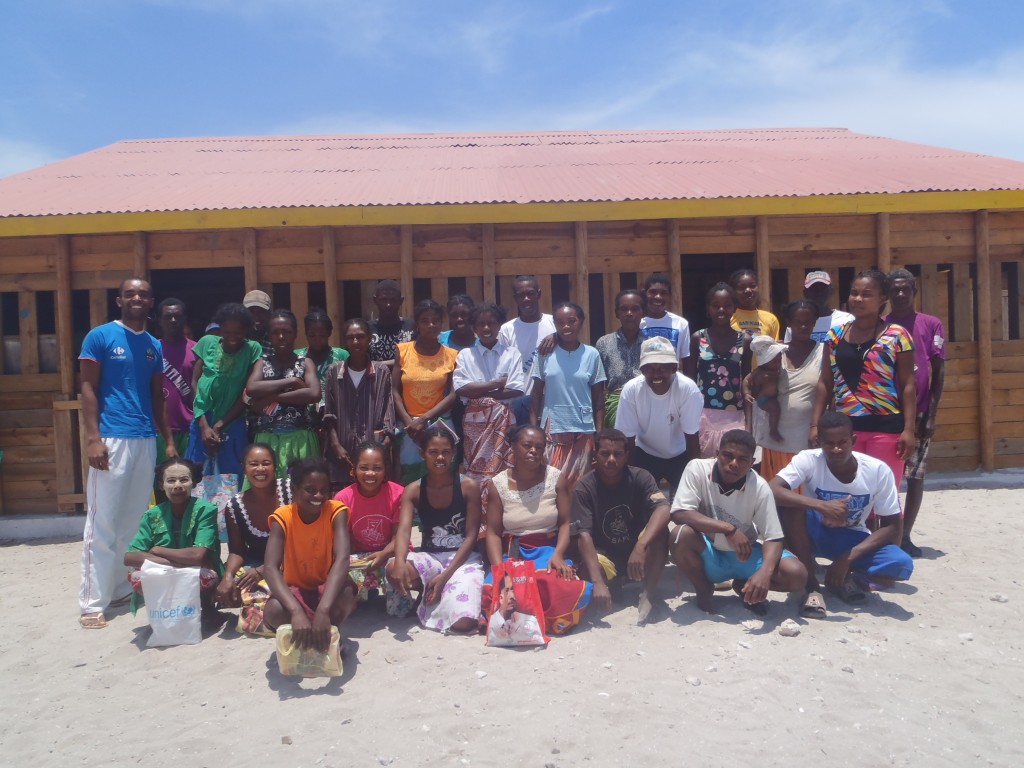
Farmers proudly posing after having completed the last module of the 6-month training.
Marie Louise’s voice breaks through and convinces the other farmers – we can do this ourselves! And this gives us hope that this training is really making a difference in helping the farmers become more self-sufficient. There is no doubt that all the effort to train the farmers has paid off. Since the training concluded in December, three village savings committees have been set up, new monitoring tools were put in place and in general the farmers display an air of self-confidence in the work that they do. With plans underway to train the next 120 new farmers as well as formalising farming cooperatives in 2014, Blue Ventures continues to provide support to help change attitudes, increase confidence and build the capacity of these farmers that will ensure the long-term success of community based aquaculture. And all that is worth more than any single handout.
Blue Ventures community-based aquaculture programme is kindly supported by Norges Vel, Indian Ocean Trepang, the University of Toliara’s Institute of Fishery and Marine Sciences (IHSM) and Copefrito.

